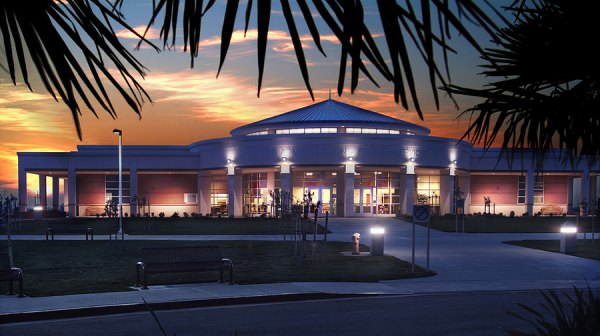The Aspen Prize is the nation’s signature recognition of high achievement and performance among America’s community colleges. The prestigious prize is funded by the ECMC Foundation, Joyce Foundation, The Kresge Foundation, and the Siemens Foundation.
The Aspen Institute College Excellence Program's primary goal is to advance higher education practices, policies, and leadership that significantly improve student outcomes, especially for the growing population of low-income students and students of color on American campuses.
The award is based on a school's healthy and improving student outcomes – including learning, completion rates, employment rates, earnings, and equity – and about 15 percent of national community colleges are invited to apply for the Aspen Prize.
Naturally, local educators and administrators at the local community college were pleased with the news that West Hills College Lemoore is among the 150 national community colleges eligible for the prestigious award.

“West Hills College Lemoore is honored to receive this prestigious recognition,” said Dr. Kristin Clark, West Hills College Lemoore President. “We are committed to student learning and achievement to promote economic development and social mobility in our community. This honor is a testament to our relentless pursuit of student success, and we are very grateful for the recognition.”
Lemoore has a long history with the West Hills Community College District. West Hills began offering classes in Lemoore in 1964, and then, in 1981, the district built a local center, featuring an office and classrooms.
In 1998, the local Pedersen and Simas families donated about 107 acres of land for the college, west of Highway 41. That same year, local voters approved a $19.5 million bond measure to fund the building of the college and remodeling Coalinga and Firebaugh campuses.
Thus, West Hills Community College Lemoore was born, and nearly 20 years later, the local campus has earned numerous awards and distinction in California and the nation.
The 150 community colleges named as eligible to compete for the 2021 Aspen Prize were selected from a pool of nearly 1,000 public two-year colleges nationwide using publicly available data on student outcomes. Located in 39 states in urban, rural, and suburban areas, serving as few as 500 students and as many as 75,000 students, these colleges represent the diversity and depth of the community college sector.
Data show that over the last two years, student retention, graduation rates, and degree completion have improved at the top tier of 150 Aspen Prize-eligible colleges.
“Community colleges play a vital role in developing talent and enabling social mobility across the country, and it’s critical for them to get better at what they do,” said Josh Wyner, executive director of the Aspen Institute College Excellence Program. “We’re pleased to see evidence that these institutions are improving, that more are delivering on their promise. We’re also pleased to play a role in honoring outstanding community colleges and sharing what works to ensure great outcomes for students—through graduation and beyond.”
The Aspen Institute will announce the top ten finalists for the 2021 Aspen Prize in May 2020. The Aspen Institute will then conduct site visits to each of the finalists and collect additional quantitative data, including employment and earnings data. A distinguished jury will make award decisions in spring 2021.
Previous winners of the Aspen Prize for Community College Excellence are: Miami Dade College (FL) and Indian River State College (FL), 2019; Lake Area Technical College (SD), 2017; Santa Fe College (FL), 2015; Santa Barbara City College (CA) and Walla Walla Community College (WA), 2013; Valencia College (FL), 2011.
For a full list of the top 150 eligible institutions and to read more on the selection process, visit www.highered.aspeninstitute.org/aspen-prize.
The Aspen Institute is a community-serving organization with global reach whose vision is a free, just, and equitable society. For 70 years, the Institute has driven change through dialogue, leadership, and action to help solve the world’s most significant challenges. Headquartered in Washington, D.C., the Institute has offices in Aspen, Colorado, and New York City, and an international network of partners. For more information, visit www.aspeninstitute.org.

